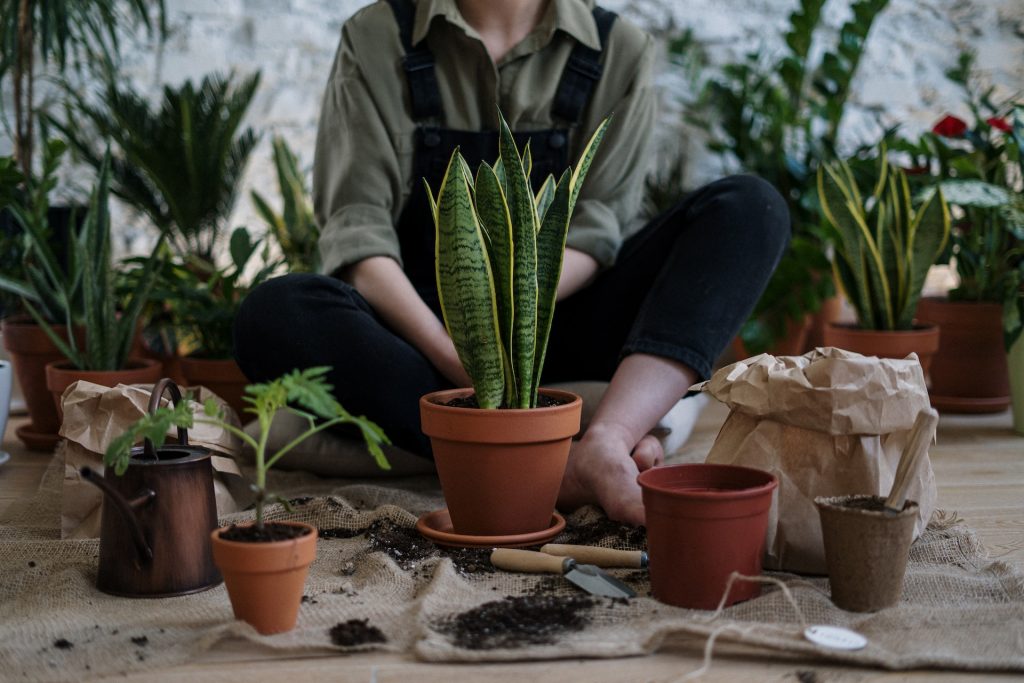Organic gardening is a practice that involves growing fruits, vegetables, and herbs without the use of synthetic fertilizers, pesticides, and other harmful chemicals. It relies on natural methods to enrich the soil, control pests, and promote plant growth. Organic gardening has become increasingly popular in recent years, as people have become more aware of the environmental and health benefits of eating fresh, pesticide-free produce. In this beginner’s guide, we’ll cover the benefits of organic gardening and give you tips to help you start your own organic garden.
Benefits of Organic Gardening
Organic gardening has several benefits over conventional gardening. Here are some of the top benefits:
- Healthier Soil: Organic gardening builds healthier soil that is rich in organic matter, nutrients, and beneficial microorganisms. Organic matter helps to improve soil structure, drainage, and fertility, while beneficial microorganisms help to break down organic matter and release nutrients into the soil.
- Pesticide-Free Produce: Organic gardening avoids the use of synthetic pesticides, which can be harmful to human health and the environment. Instead, organic gardeners rely on natural pest control methods such as companion planting, crop rotation, and beneficial insects.
- Better for the Environment: Organic gardening is a sustainable practice that is better for the environment. By avoiding the use of synthetic fertilizers and pesticides, organic gardeners help to reduce pollution, protect wildlife and ecosystems, and conserve natural resources.
- More Nutritious Produce: Organic produce is often more nutritious than conventionally grown produce, as it contains higher levels of vitamins, minerals, and antioxidants. Organic produce is also less likely to contain harmful chemicals such as pesticides and herbicides.
- Cost-Effective: Organic gardening can be cost-effective, as it can save you money on groceries. With a little effort, you can grow your own produce at home, and avoid paying premium prices for organic produce at the grocery store.
Tips for Successful Organic Gardening
Here are some tips to help you get started with organic gardening:
- Start with Healthy Soil: Healthy soil is the foundation of a successful organic garden. Test your soil to determine its pH level and nutrient content, and then amend it with compost, manure, or other organic matter as needed. This will help improve soil structure, drainage, and fertility.
- Use Organic Seeds and Plants: To ensure your garden remains organic, use only organic seeds and plants. Look for labels that indicate they are certified organic.
- Plant in the Right Location: Choose a location that receives at least 6 hours of sunlight per day and has good drainage. Avoid planting in areas that are prone to flooding or have poor drainage.
- Rotate Your Crops: Crop rotation is a simple but effective way to help prevent soil-borne diseases and pests. Plan your garden so that you’re rotating crops every year or every few years.
- Use Natural Pest Control: Instead of using harmful chemicals to control pests, use natural methods like companion planting, crop rotation, and organic pesticides.
- Water Wisely: Watering your garden is important, but it’s important to do it wisely. Water deeply and infrequently to encourage deep root growth, and water in the morning or evening to avoid evaporation.
Organic gardening also helps to promote biodiversity. When you use chemical pesticides and fertilizers, you can inadvertently harm beneficial insects, birds, and other wildlife. By using organic gardening methods, you can create a healthy ecosystem in your garden that supports a wide range of beneficial creatures.
By following these tips, you can start your own organic garden and enjoy the benefits of fresh, healthy, and sustainable produce. Whether you have a small balcony or a large backyard, organic gardening is a fun and rewarding hobby that can help you connect with nature and improve your health.

